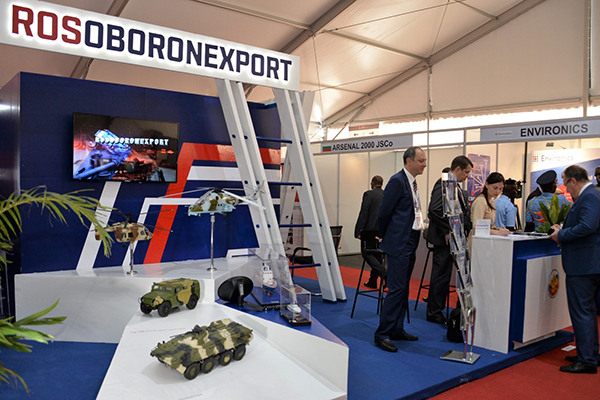
Russian deliveries of military supplies to India have ground to a halt as the countries struggle to find a payment mechanism that doesn’t violate US sanctions, according to Indian officials with knowledge of the matter.
Indian payments for weapons amounting to more than $2 billion have been stuck for about a year, and Russia has stopped supplying credit for a pipeline of about $10 billion worth of spare parts as well as two S-400 missile-defense system batteries that have yet to be delivered, according to the officials, who asked not be identified due to the sensitivity of the issue. Russia is India’s biggest supplier of weapons needed to deter Pakistan and China, Bloomberg reported.
India is unable to settle the bill in US dollars due to concerns about secondary sanctions, while Russia remains unwilling to accept rupees due to exchange-rate volatility, the officials said. New Delhi also doesn’t want to complete the deal in Russian rubles due to concerns about being able to purchase enough on the open market at a fair rate, they said.
India’s government has proposed Moscow use the rupees from weapons sales to invest in Indian debt and capital markets to avoid stockpiling rupees, they added, but Vladimir Putin’s government doesn’t find that appealing.
One possible solution would be to use euros and dirhams, the currencies used to pay for Indian imports of discounted Russian crude, a senior Indian government official said. However, using these currencies to pay for weapons could invite more scrutiny from the US over sanctions than oil, as well as pushing up costs due to unfavorable exchange rates for India.
Another option under discussion is a mechanism for Russia to offset purchases of Indian imports against the price of the weapons, one of the officials said. But this isn’t easy because Russia had a $37 billion trade surplus last year with India, its third-largest behind China and Turkey, according to data compiled by Bloomberg.
India’s Ministry of Defense, Ministry of External Affairs, Finance Ministry and the Reserve Bank of India did not respond to phone calls or emailed requests for comment. The Kremlin and Rosonboronexport, Russia’s state arms sale company, also didn’t respond to texts and emailed requests for comment. The issue of payments for weapons has taken on more urgency of late, and dominated discussions when National Security Adviser Ajit Doval visited Moscow in January, the people said. It also featured heavily in talks in Delhi between Russian Deputy Prime Minister Denis Manturov and India’s External Affairs Minister Subrahmanyam Jaishankar, who said that the rupee settlement needed more work.
“There is also understandable concern about the trade imbalance,” Jaishankar told reporters. “We need to work together with our Russian friends on a very urgent basis on how to address that imbalance.”
India currently operates more than 250 Su-30 MKi Russian-made fighter jets, seven Kilo-class submarines and more than 1,200 Russian-made T-90 tanks — all of which are operational for another decade and need spare parts. Three of five S-400 missile defense systems have already been delivered.
The Indian Air Force, which depends on a Russian fleet of fighters and helicopters, is among the worst hit from the disruption in supplies from Moscow, the people said. It’s uncertain whether Russia can perform regular maintenance, they added, potentially leading to vulnerabilities along India’s borders with China and Pakistan. The India-Russia relationship will come under further scrutiny when Prime Minister Narendra Modi hosts Group of 20 leaders in September, during which the war will be a key focus. That meeting might be holding India back from immediately ironing out the payment mechanism for weapons with Russia, the people said.

















